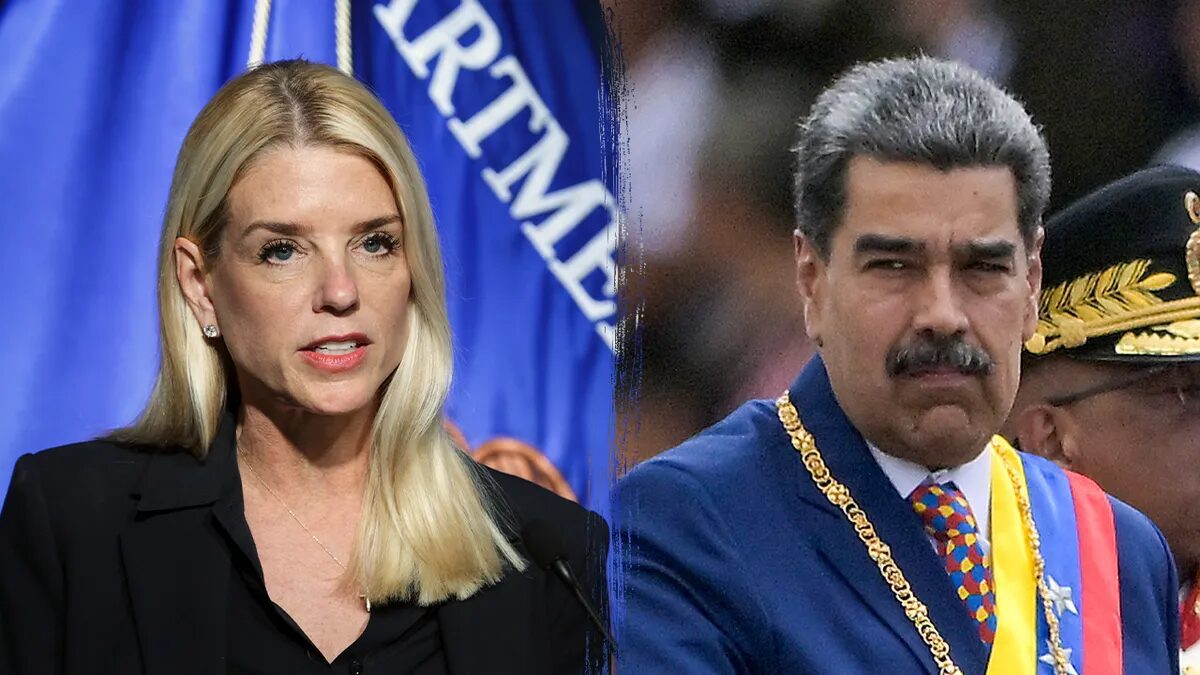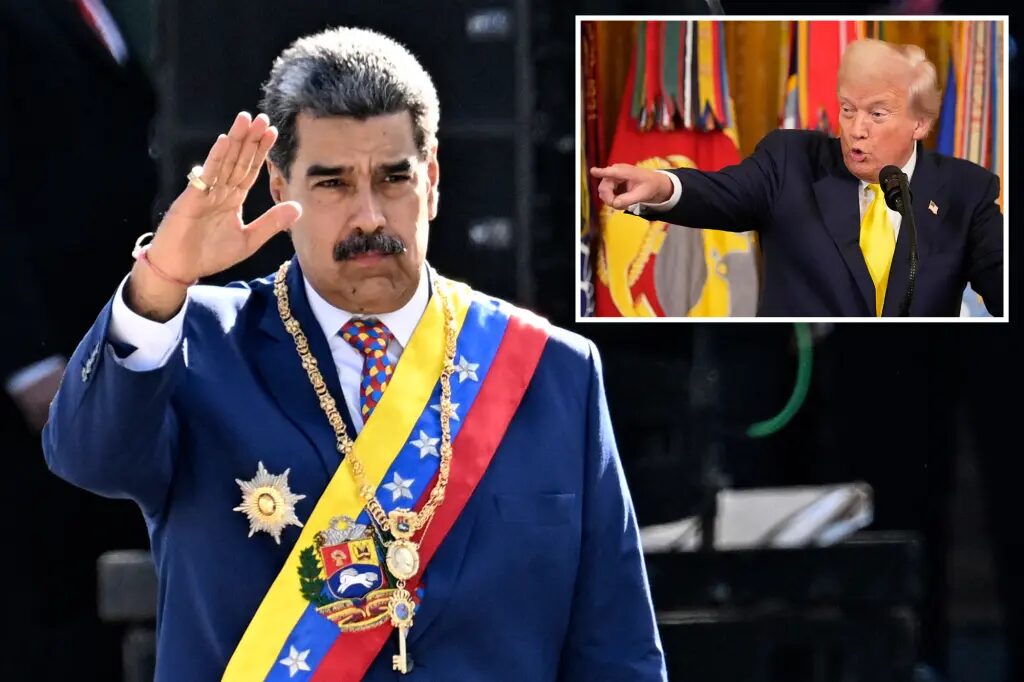The United States Offers $50 Million Bounty for Venezuelan President Nicolas Maduro
Jamaica Live International News Desk | August 8, 2025
Washington, D.C. – The United States has dramatically escalated its pursuit of Venezuelan President Nicolás Maduro, with Attorney General Pam Bondi announcing on August 7 a $50 million reward for information leading to his arrest or conviction on narco-terrorism charges.

This unprecedented bounty, the highest ever placed on a sitting head of state by the U.S., doubles the previous $25 million reward offered under the Biden administration and surpasses the $15 million originally set during President Donald Trump’s first term. The announcement comes amid renewed efforts by the Trump administration to reassert a hardline stance on Maduro following his controversial re-election in 2024 — a vote dismissed by the U.S., EU, and several Latin American governments as fraudulent.
Bondi: “One of the Largest Narco-Traffickers in the World”
In a fiery video message released on social media, Bondi labelled Maduro “one of the largest narco-traffickers in the world” and a direct threat to U.S. national security. She accused the Venezuelan leader of operating as a criminal kingpin, allegedly in league with notorious international syndicates, including Venezuela’s Tren de Aragua, the Cartel of the Suns, and Mexico’s Sinaloa Cartel.
“Under President Trump’s leadership, Maduro will not escape justice,” Bondi declared. “He will be held accountable for his despicable crimes.”
The Attorney General claimed U.S. authorities have already seized over 30 tons of cocaine connected to Maduro and his associates, with nearly seven tons directly linked to the president himself. She also revealed that the Department of Justice has confiscated over $700 million in assets, including two private jets and nine luxury vehicles, as part of ongoing investigations.
Maduro Responds: “A Ridiculous Smokescreen”
Venezuelan Foreign Minister Yvan Gil fired back on the messaging platform Telegram, dismissing the reward as “the most ridiculous smokescreen ever seen,” accusing Bondi of using Maduro as a distraction from the Jeffrey Epstein controversy in the United States.
“Her show is a joke, a desperate distraction from her own miseries. The dignity of our homeland is not for sale,” Gil stated.
He went further, referencing Bondi’s past statements about a “secret Epstein list,” calling the entire U.S. move “crude political propaganda.”
Long-Standing Charges and a Political Tug-of-War
Maduro was originally indicted by a U.S. federal court in 2020 under Trump’s first administration, alongside several high-ranking Venezuelan officials. He has consistently denied the charges, accusing Washington of orchestrating a campaign of regime change to gain control of Venezuela’s vast oil reserves.

Despite international sanctions, growing humanitarian crises, and persistent allegations of election fraud, Maduro has maintained power — most recently securing another term in 2024 under conditions that have been widely condemned as undemocratic.
Oil, Hostages, and Diplomatic Tensions
Just last month, the Trump administration negotiated a controversial prisoner swap, securing the release of 10 American detainees from Caracas. In return, the U.S. facilitated the return of dozens of migrants deported to El Salvador as part of Trump’s new immigration crackdown.
In a surprising move following the deal, the White House also authorized U.S. oil giant Chevron to resume operations in Venezuela, marking a significant shift from previous sanctions that had blocked American companies from doing business in the country.
A Bounty with Global Ripples
The $50 million bounty has sent shockwaves through diplomatic circles. It not only signals a renewed offensive against Maduro but also places U.S. allies and regional partners in a difficult position — balancing non-interventionist principles with growing concerns about transnational crime and humanitarian instability in Venezuela.
For Caribbean nations like Jamaica, who have historically adopted a more neutral stance on the Venezuela crisis, the intensifying U.S. pressure campaign raises urgent questions about foreign policy alignment, regional security, and the potential for further displacement and migration.
Jamaica Live will continue to monitor this story as it develops.
